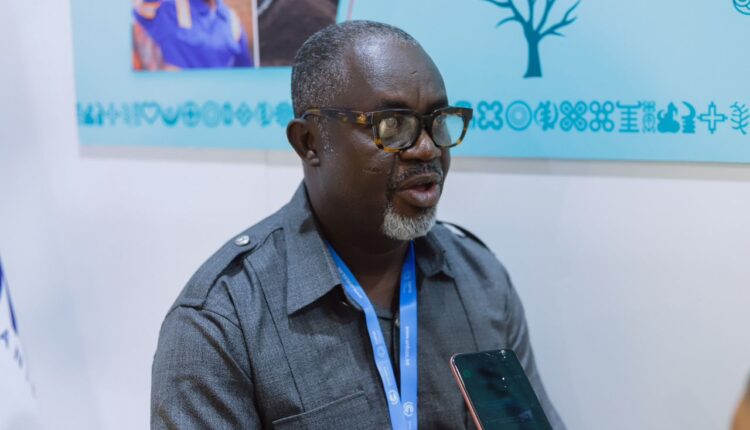COP29: Ghana displays its Roadmap for Early Warning Systems to Mitigate Climate Disasters
The draft roadmap is ready to finalize. And when finalized, it becomes a source document for implementation, for resource mobilization, for filling in the gaps and be able to have fully fledged early warning for all in our country, and for our citizens and for socio-economic development of Ghana,”
- Advertisement -
Ghana has taken a significant step towards mitigating climate-related disasters by developing a roadmap for early warning systems. The Ghana Meteorological Agency (GMET) showcased its efforts at the COP29 summit.
Director General of GMET Dr. Eric Asuman, speaking in an interview at the sidelines of COP 29 in Azerbaijan, that the draft roadmap is part of the UN Secretary General’s call for early warning for all by 2027. The initiative focuses on four pillars: risk knowledge and vulnerability analysis, monitoring and forecasting, communication, and preparedness and response.
- Advertisement -
The roadmap, developed in collaboration with international organizations and local stakeholders, aims to provide a coordinated approach to early warning systems. GMET worked with the World Meteorological Organization (WMO), United Nations Office for Disaster Risk Reduction (UNDRR), and the National Development Planning Commission (NDPC) to create the document.
- Advertisement -
Dr. Asuman emphasized the importance of resource mobilization to support the implementation of early warning systems. He highlighted the need for funding from global sources, including the Loss and Damage Fund agreed upon at COP28.
The draft roadmap is ready to finalize. And when finalized, it becomes a source document for implementation, for resource mobilization, for filling in the gaps and be able to have fully fledged early warning for all in our country, and for our citizens and for socio-economic development of Ghana,” he explained.
- Advertisement -
An early warning system is generally a network of processes that detect and communicate potential hazards, like natural disasters or disease outbreaks, to help people prepare and respond. The early warning system will benefit Ghana in various ways, including enhancing preparedness for climate-related disasters, supporting agricultural planning through seasonal forecasts and provide critical information for emergency response.
At COP 27 in Egypt, the UN Secretary General called on two international bodies, United Nations Disaster Risk Reduction and World Meteorological Organization, to lead the charge for early warning for all by 2027. And in his call, he tasked four international UN bodies to ensure that early warning for all is implemented.
With the roadmap in place, Ghana aims to achieve full implementation of early warning systems by 2027.
Source: Businessweekghana.com
- Advertisement -


